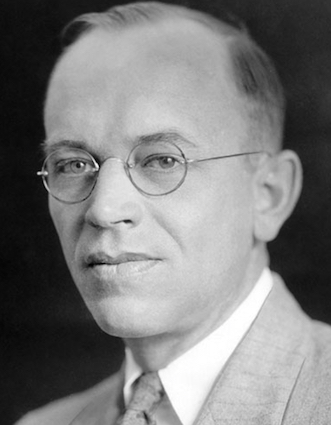On this date in 1887, wildlife ecologist Rand Aldo Leopold was born in Burlington, Iowa, the eldest of four in a family of Lutherans who rarely attended church. Leopold earned his master of forestry from Yale University in 1909, worked in the Southwest, then transferred to the Forest Products Laboratory, in Madison, Wis. He became professor of game management at the University of Wisconsin in 1933 and chair of its new wildlife management department in 1939.
Leopold married a Catholic, Estella Bergene, in 1912, and they had five children. His church-going was limited to being married in one and attending his daughter Nina’s wedding. Beyond that, he believed “there was a mystical supreme power that guided the Universe, but to him this power was not a personal God. It was more akin to the laws of nature,” according to biographer Curt Meine (Aldo Leopold: His Life and Work, 1988).
In the 1930s he acquired a worn-out farm near Baraboo, Wis., dubbed “the Shack,” as a weekend retreat. He applied his respect for living lightly on the land and for “harmony between people and the land” to restore it. It remains the only “chicken coop” listed on the National Register of Historic Places. His influential book A Sand County Almanac, composed of sketches of nature and philosophical essays, was published posthumously in 1949. He suffered a fatal heart attack at age 61 while helping a neighbor put out a grass fire near Baraboo. (D. 1948)
PHOTO: Courtesy of USFS Forest Products Laboratory


